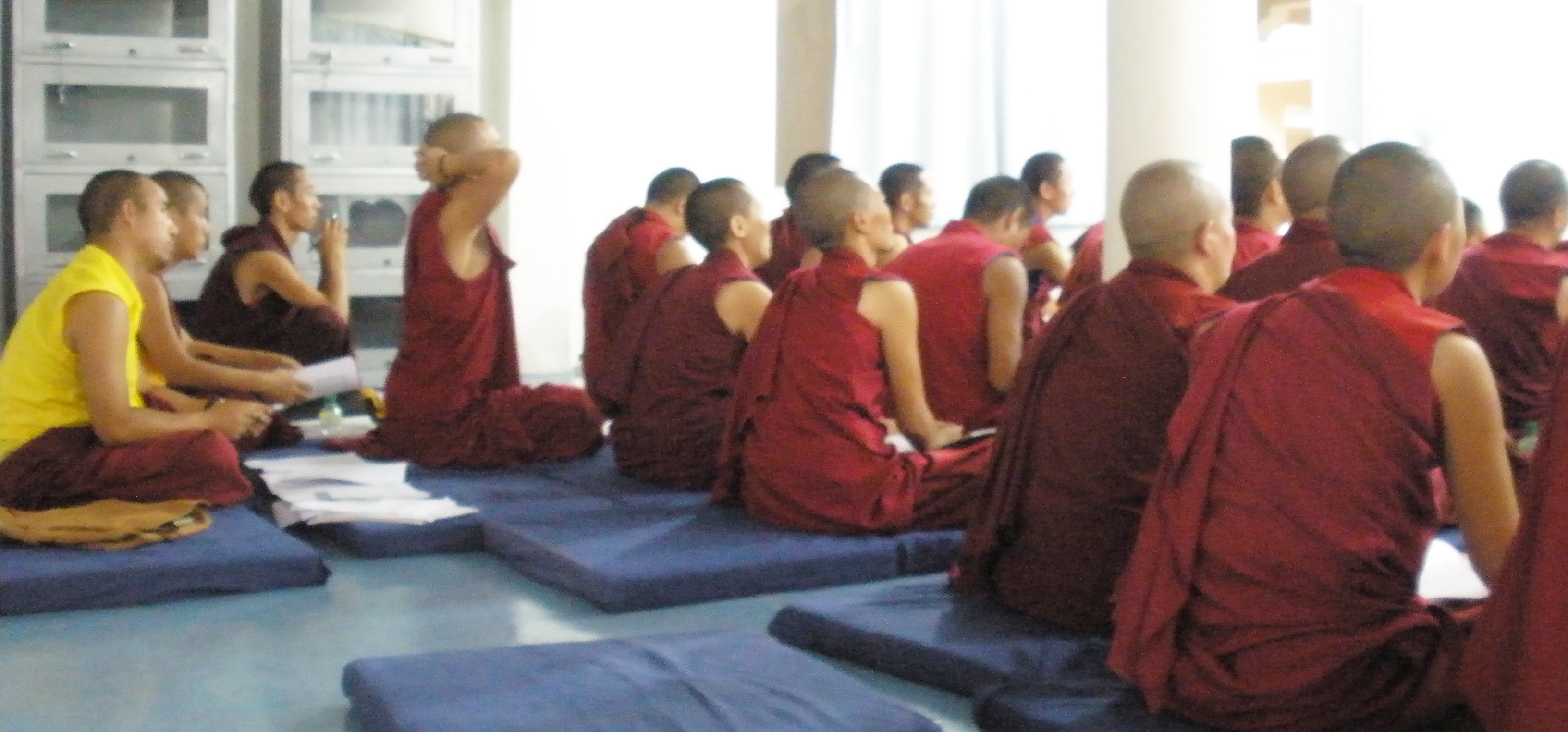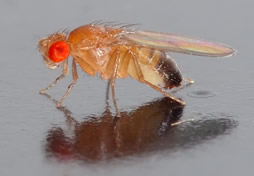Teaching

Insects and Culture
This general education course is designed to establish an appreciation for the roles that insects have played in the
development of human societies. Because insects account for more than half of all described species on earth,
they are constantly creeping, crawling, and flying into human culture, influencing history and economic stability. This
course explores the diverse ways that the lives of insects and humans intertwine, shaping all aspects of our humanity.
Topics covered include:
- Insect diversity
- A history of insects as food producers (e.g. the development of agriculture)
- Fibers and dyes made from insects (e.g. the silk road)
- Disease vectors (e.g. in European colonization of the Americas)
- Sources of inspiration (e.g. in art, music, movies)
- Tools for science (e.g. for understanding human disease)
- Pests (e.g. competition for food and land)
Comparative Immunology
This course is focused on the comparative immunology of prokaryotes, protozoans, plants, fungi, invertebrates, and
“lower” vertebrates. The class is aimed at teaching students to see evolutionary patterns that help explain how our
own immune system developed from those of our ancestors. Such comparative study highlights the strengths and
weaknesses of our immune system, and points to ways in which other organisms have overcome the same pathogenic
stresses we currently face. Topics covered include:
- Restriction-modification systems
- RNA interference
- Antimicrobial proteins
- Reactive oxygen species
- Cell death
- The hypersensitive response of plants
- Systemic acquired resistance in plants
- Proteolytic cascade systems
- Phagocytosis
- Humoral immunity in invertebrates
- Cellular immunity in invertebrates
- Immune specificity
- Immune memory
- Acquired immunity of vertebrates
- Pathogen infection strategies
- Adaptive evolution of immune systems
Behavioral Genetics
This course is focused on the ecological and evolutionary forces that maintain behaviors as well as the neurological
and genetic mechanisms that underlie them. The lectures are based on case studies of human behaviors using
recent primary literature, while the labs take advantage of the fruit fly model system. Each student will contribute to
a class association mapping study in flies, and will also undertake their own candidate gene functional studies for a
fly behavior of their choice. Topics covered include:
- Pair bonding
- Mate choice
- Sexuality
- Aggression
- Depression
- Addiction
- Obesity
- Sleep
- Learning and memory
- Intelligence
Evolutionary Biology
This course covers the history and current status of major research areas in evolutionary
biology including mechanisms
of evolutionary change, adaptation, speciation, and the history of life. The lectures rely heavily on recent articles from the
primary literature, while the lab focuses on practical applications of evolutionary biology and outdoor exploration of the
diversity of life. Each student will contribute to a class artificial selection experiment in flies, and will also undertake their
own adaptation experiments. Topics covered include:
- Artificial selection
- Adaptation in nature
- Genetic variation and population structure
- Molecular evolution
- Phylogenetic inference
- Sexual selection
- Speciation
- The evolution of sex
- Kin selection and eusociality
- Game theory and life history evolution
- The evolution of novelty
- Developmental programs
- Aging
- Host-parasite interactions
- Human evolution
- The origin of life and macroevolution
Molecular Evolution
This course covers broad topics in the field of molecular evolution, including genome structure, population genetics,
and bioinformatic and phylogenetic methods, with the goal of understanding the demographic and selective forces
shaping genomes. Topics covered include:
- Mutation
- Genetic drift
- Natural selection
- Population structure and demography
- DNA sequencing methods
- Phylogenetic inference
- Molecular clock
- Genome and chromosome evolution
- Gene regulation
- Novel genes
- Selfish elements
- Speciation
Human Biology
This course covers human evolution, genetics, behavior, environment, and other current topics in the mainstream
press. We will discuss such questions as: Which features of anatomy and lifestyle set us apart fromour closest
primate relatives? Is the concept of human races still useful? Are the brains of men and woman different? Are
behavioral traits like alcoholism, aggressiveness, and sexual orientation heritable? Will the field of human genomics
enable us to cure genetic and infectious diseases? How can we face environment challenges such as overpopulation,
pollution, and global warming? Topics covered include:
- Hominid evolution
- Bipedalism, precision grip, and toolmaking
- Language and brain development
- Sociobiology, behavior, and twin studies
- Gender roles and societal structure
- Pathogens, vaccination, and antibiotic resistance
- Diet and obesity
- Chemical hormone mimics
- Cancer, heart disease, and senescence
- Gene therapy and stem cell research
- The human genome project
- Genetic diversity
- Population growth
- Water supply and quality
- Land availability and crop yields
- Environmental degradation
- Ozone layer depletion
- Global warming
Emory Tibet Science Initiative - Molecular and Cell Biology
This course intoduces "western science" to Tibetan monks and nuns living in exile in India, as part of Emory
University's collaboration with the Dalai Lama. Topics covered include:
- The definition of life
- The cell theory
- Hierarchy of organization
- Water and hydrogen bonds
- Acids and bases
- Chemical groups
- Amino acids and proteins
- Nucleic acids
- Carbohydrates
- Lipids and membranes
- Organelles and cell structure
- Cell cycle
- Signal transduction
- Photosynthesis
- Respiration
- Cell movement

